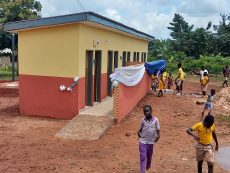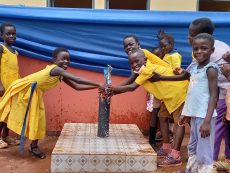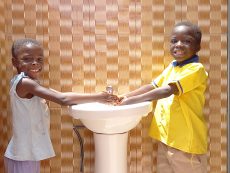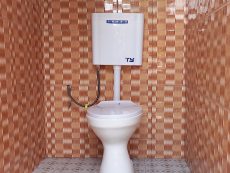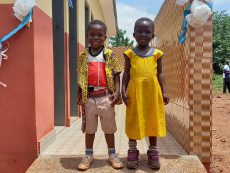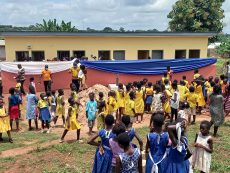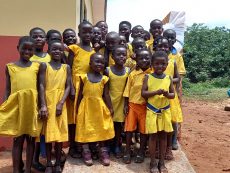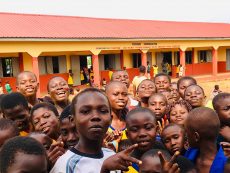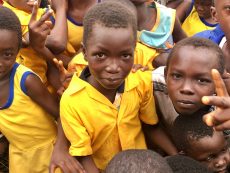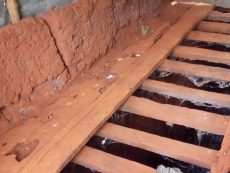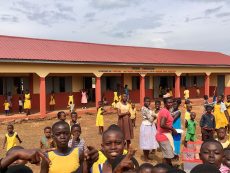
Brahoho School-WaSH Project
Background of the School WaSH project
In schools, WaSH projects are an important building block for positive behavioural changes in children with regard to hygiene.
WaSH means: water, sanitation and hygiene. Access to clean drinking water and adequate sanitation is of fundamental importance for the children in Brahoho. Only in this way diseases can be prevented, important hygiene measures learned and regular school attendance – for both boys and girls – be made possible.
Another positive side effect of the School WaSH project is that once the pupils have learned the new hygiene standards, they help to raise awareness among their parents,family and environment and become important agents of change in their communities.
It should be kept in mind at all times: Children are not only the generation of the future, but also future parents – and what they learn at school, they will pass on to their own children.
WaSH projects in schools therefore help not only the pupils, but also the whole community and future generations.
Project Background:
Brahoho is located in the Nkoranza South Muncipality District, in the Bono Region in Ghana and is a community of about 4,000 inhabitants, mainly farmers.
The Brahoho Methodist School, with currently 266 pupils and 13 teachers and staff, has no access to clean drinking water and hygienic toilets.
Therefore, the pupils use a corrugated iron shed hut with a pit latrine as toilet. The smell is so unbearable that they sometimes take off their shirts to cover their noses. This situation is even more serious for the girls, as it offers them no privacy at all.
The unsustainable hygiene conditions at the latrine and the contaminated drinking water, that the pupils have to fetch from a pond often lead to diarrhoea and thus to high absenteeism.
Project objectives:
- Construction of a hygienic toilet facility with hand washbasins
- Construction of a mechanised water supply with storage tank
Benefits of the project:
- Access to clean water, adequate sanitation and hand washing facilities
- Promotion and training in the field of hygiene
- to enable girls to attend school even during their menstruation
- reducing diseases caused by contaminated water
- Meeting the drinking water needs of the school and town
Conclusion:
The project aims to improve the hygiene and health conditions of the beneficiaries (pupils, teachers and community members). Clean water, toilets and school places contribute to good health.
The cornerstones of the project are the establishment of appropriate infrastructure and raising awareness of hygiene issues.
The local community will be involved at all levels of the project. This will strengthen the community sense of ownership and make the project sustainable. The information and training measures will also have a certain multiplier effect, i.e. the pupils, teachers and all those involved in the project will disseminate the new knowledge to the community. This is the only way to achieve a profound and lasting improvement in the hygiene situation throughout the Community.
Status: completed; initiated by a fundraising campaign of the Fischer family
Costs: approx. 16.500€


